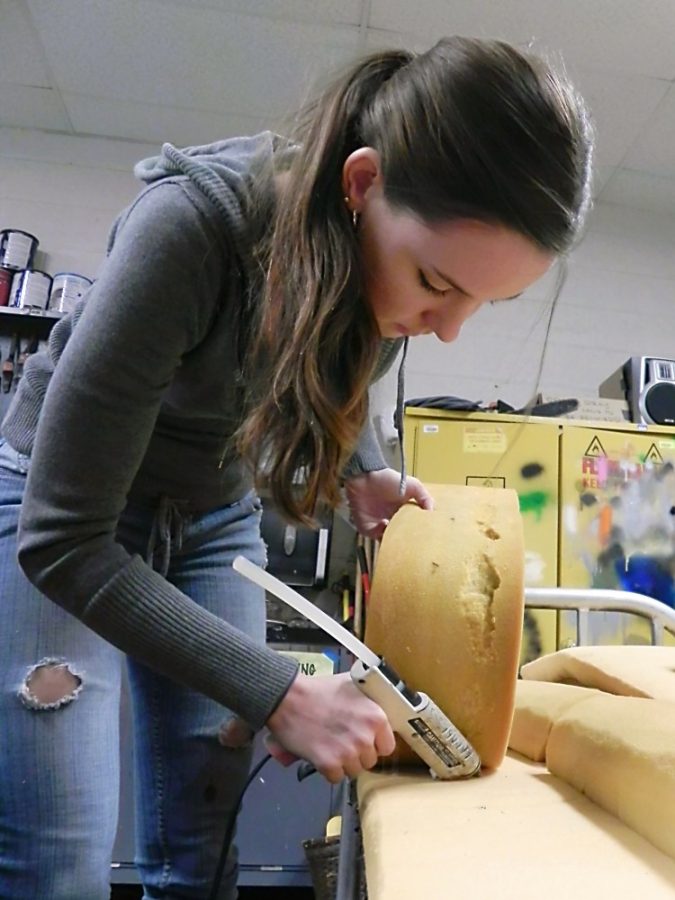No two shifts are ever the same for student employees in the UA School of Theatre, Film and Television Properties Shop.
Workers may spend a few hours sewing curtains and refinishing 19th century furniture for Arizona Repertory Theatre’s “The Secret Garden” or they could get crafty with crepe paper to create fake Thai spring rolls for the next show, “Necessary Targets.”
Behind every campus theatre production are the students in the prop shop who find or create the items used on stage. Some students receive class credit to work on specific productions, and several are part-time employees.
The shop, housed in the Drama building, is full of props from past and current shows. Portraits line the walls and a dollhouse, fake apple pie and stuffed bunny peeking out of a pot occupy a large work table in the center of the room.
“There’s no monotony to this job,” said Michelle Bisbee, manager of the prop shop and a fine arts graduate student with an emphasis on scenic design.
A designated prop master is in charge of each show, Bisbee said. The prop master then works with the stage manager to decide what props are needed.
Some props — like antique furniture or fountains — may be donated, purchased or found in storage. Up to six students then help with items that need to be welded, faux finished, reupholstered or created from scratch.
Prop artisans also have to be careful to create items that could be found in the time and place the production is set in, said John Eddy, a senior studying theatre production with an emphasis on scenic design. For instance, artisans working on props for “Necessary Targets” recreated the United Nations relief logo by looking at pictures of relief camps, he said.
“We do a bunch of research to see what the world looked like,” Eddy said. “In this case, it’s war-torn Bosnia.”
They usually work in the shop from 1 to 5 p.m., though prop artisans work until deadlines are met, Bisbee said. They aim to have props done a few days before the show’s technical rehearsals.
The work often requires more time than the paid hours, Eddy said. Eddy is scheduled for nine hours a week in the shop but works up to 40, he said.
“It sounds odd, but you do what you enjoy,” Eddy said.
And the job isn’t over until the show stops running, said Katelyn Lustro, a senior studying theatre production with an emphasis on scenic design who was the prop master for “The Secret Garden,” which is still running. Prop designs may change after rehearsals and any prop that breaks during performances has to be repaired immediately.
Lustro, who is scheduled to work six hours a week, said she worked for 10 hours a day for two months on props such as various curtains, a large luggage cart and a working fountain for “The Secret Garden.” Lustro was hired at the prop shop after working on another show for class credit with no experience.
“I had no idea what I was doing,” Lustro said. “You just try things out. And watch lots of YouTube videos.”
It’s this “experiential learning” that makes working at the prop shop worthwhile, Bisbee said.
“In theatre, you have to physically do it,” she said while holding a kitten figurine made completely of hot glue and water. “You couldn’t read how to do this in a book.”
Artisans take pride in their props after overcoming the challenges of creating them within the allotted time frame and budget, Bisbee said.
“It’s really rewarding,” she said. “You’re not doing it for yourself. It’s a labor of blood, sweat and tears. Sometimes all in the same half-hour.”









